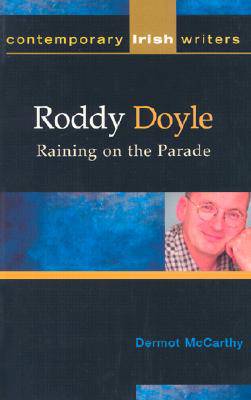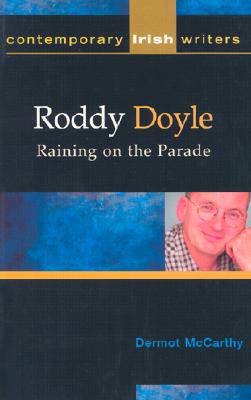
Bedankt voor het vertrouwen het afgelopen jaar! Om jou te bedanken bieden we GRATIS verzending (in België) aan op alles gedurende de hele maand januari.
- Afhalen na 1 uur in een winkel met voorraad
- In januari gratis thuislevering in België
- Ruim aanbod met 7 miljoen producten
Bedankt voor het vertrouwen het afgelopen jaar! Om jou te bedanken bieden we GRATIS verzending (in België) aan op alles gedurende de hele maand januari.
- Afhalen na 1 uur in een winkel met voorraad
- In januari gratis thuislevering in België
- Ruim aanbod met 7 miljoen producten
Zoeken
Omschrijving
Roddy Doyle is the most successful Irish writer to emerge in the 1990s. All of his novels have been bestsellers, from the early Barrytown Trilogy (The Commitments, The Snapper, The Van), all of which have been filmed, through the Booker Prize-winning Paddy Clarke Ha Ha Ha, and up to his revisionist A Star Called Henry. It is largely because of this popularity, and of the perceived anti-intellectual thrust of his fiction, that many critics have refused to recognise him as literary. Others have criticised him for his unflattering depictions of modern Ireland. Doyle himself has long refused to participate in such pigeon-holing. Dermot McCarthy argues that Doyle's representation of working-class Dublin - in effect, an urban Ireland that had never been represented in Irish fiction or film before - has broken with the traditional literary view of the Irish as a homogeneous people and has given a voice to a little-heard side of modern Ireland. of Irish history and identity, but rather they negotiate a culture that is a complex processor of exogenous (largely American) influences and indigenous adaptation and assimilation. Doyle is a realistic novelist, a comic social-satirist, and latterly, a brilliantly inventive parodist whose fictions cohere around a single focal concern: the defence of the individual's struggle to live with dignity and decency in the face of all those forces which attempt to coerce the individual into accepting the way things are. Setting Doyle's six novels in the context of the seismic changes that have shaken Irish society in the last twenty years, McCarthy stakes a claim for Doyle as Ireland's pre-eminent chronicler of modern Ireland.
Specificaties
Betrokkenen
- Auteur(s):
- Uitgeverij:
Inhoud
- Aantal bladzijden:
- 265
- Taal:
- Engels
- Reeks:
Eigenschappen
- Productcode (EAN):
- 9781904148258
- Verschijningsdatum:
- 25/10/2004
- Uitvoering:
- Paperback
- Formaat:
- Trade paperback (VS)
- Afmetingen:
- 139 mm x 219 mm
- Gewicht:
- 376 g

Alleen bij Standaard Boekhandel
+ 47 punten op je klantenkaart van Standaard Boekhandel
Beoordelingen
We publiceren alleen reviews die voldoen aan de voorwaarden voor reviews. Bekijk onze voorwaarden voor reviews.









